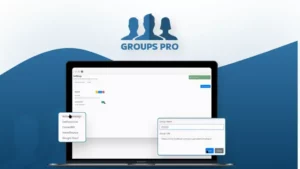Customer data software is a powerful tool that enables businesses to effectively collect, analyze, and utilize customer information. It enhances marketing efficiency, allows for personalized communication, and integrates seamlessly with existing systems to drive better decision-making and strengthen customer relationships.
Customer data software is becoming a game-changer for businesses aiming to enhance their marketing efforts and improve customer relationships. This innovative tool enables businesses to gather, analyze, and utilize customer information efficiently. In this article, we’ll dive into what customer data software entails, its crucial features, and how it can not only streamline your marketing strategies but also foster stronger connections with your audience.
What is Customer Data Software?
Customer data software is a tool that helps businesses collect, analyze, and utilize customer information effectively. This software allows companies to store valuable data such as purchase history, demographics, and customer interactions in one central location. This unified approach enhances the ability to understand customers better, leading to improved decision-making and marketing strategies.
How Customer Data Software Works
The process begins with data collection, which can be done through various channels such as e-commerce websites, customer surveys, and social media interactions. Once this data is gathered, the software organizes and categorizes it for easy access and analysis.
Types of Data Collected
Customer data software typically collects several types of information, including:
- Demographic data: Information such as age, gender, location, and income level.
- Behavioral data: Insights into how customers interact with your business, like browsing patterns and purchase frequency.
- Transactional data: Details about customer purchases, including what they bought and when.
This comprehensive view of customer behavior helps businesses tailor their marketing efforts to meet customers’ unique needs.
Benefits of Using Customer Data Software
Employing customer data software offers numerous benefits:
- Personalization: Companies can create targeted marketing campaigns based on customer preferences.
- Efficiency: Consolidating data in one platform saves time and reduces the likelihood of errors.
- Insights: Analyzing customer data helps businesses make informed decisions.
By utilizing customer data software, companies can enhance customer experience and boost their overall performance.
Key Features of Customer Data Software

Key features of customer data software are essential for organizations looking to leverage customer information effectively. Understanding these features can help businesses choose the right solutions to improve their operations and customer engagement.
Data Integration
One of the most important features is data integration. This means the software can gather and consolidate customer data from various sources, such as websites, CRM systems, and social media. A seamless integration process ensures that all data is accurate and up to date.
Segmentation and Targeting
Customer data software often includes advanced segmentation and targeting capabilities. Businesses can categorize customers based on shared characteristics, such as purchase history or demographics. This feature helps companies deliver personalized marketing messages that resonate with specific segments of their audience.
Analytics and Reporting
Another vital feature is powerful analytics and reporting tools. These tools allow businesses to analyze customer behavior and trends, providing insights that help make informed decisions. Companies can create reports that illustrate patterns and success metrics, making it easier to adjust strategies as needed.
User-Friendly Interface
An intuitive and user-friendly interface is crucial for customer data software. This makes it easy for team members at all levels to navigate the platform and access the information they need quickly. A well-designed interface can significantly increase productivity and reduce the time spent on training.
Data Privacy and Security
Data privacy and security features are increasingly important in today’s world. Reliable customer data software ensures that sensitive customer information is kept secure and complies with regulations such as GDPR. These features help build trust with customers and protect businesses from data breaches.
How Customer Data Software Improves Marketing Efficiency
Customer data software plays a critical role in improving marketing efficiency for businesses of all sizes. By harnessing the power of customer data, companies can make smarter decisions and enhance their marketing strategies.
Personalized Marketing Campaigns
One of the key benefits is the ability to create personalized marketing campaigns. With accurate customer data, businesses can segment their audience based on interests, buying behavior, and demographics. This allows for targeted messaging that speaks directly to each group’s unique needs, leading to higher engagement and conversion rates.
Automating Marketing Processes
Another advantage is the automation of marketing processes. Customer data software can automate tasks such as sending emails, follow-ups, and reminders. This not only saves time but also helps maintain consistent communication with customers without manual effort.
Enhanced Customer Insights
The software also provides enhanced customer insights through analytics tools. By analyzing customer behavior and feedback, businesses can understand what drives purchases and which strategies are most effective. This data-driven approach allows for continuous improvement in marketing efforts.
Improved ROI
By utilizing customer data software, companies can see a marked improvement in return on investment (ROI) for their marketing campaigns. With better targeting and automation, businesses can reduce wasted spending on ineffective strategies and focus resources on efforts that bring results.
Streamlined Communication
Finally, customer data software can help ensure streamlined communication across departments. When marketing teams have easy access to up-to-date customer information, they can work more collaboratively with sales and customer service teams. This alignment leads to a more cohesive customer experience.
Integrating Customer Data Software with Existing Systems

Integrating customer data software with existing systems is a crucial step for businesses aiming to enhance their data management and marketing capabilities. This process ensures that all customer-related information is centralized and accessible, enabling more efficient operations.
Understanding Integration Needs
The first step in integration is to understand your business’s specific needs. This includes identifying which existing systems, such as CRM platforms or e-commerce sites, need to connect with the new customer data software. Proper assessment allows for a smoother integration process.
Choosing Compatible Solutions
When selecting customer data software, it is important to consider compatibility with your current systems. Opt for solutions that offer integrations with popular platforms or APIs that can facilitate data sharing. Researching user reviews and case studies can provide insight into how well the software integrates with other tools.
Data Migration
Data migration is a critical component of the integration process. This involves transferring existing customer data from systems to the new software. Ensuring data accuracy and consistency during this transfer is vital. A well-planned migration strategy, including data cleaning and validation, can prevent future issues.
Training and Support
Once integration is complete, providing training and support for your team is essential. Employees need to understand how to use the new software effectively and how it fits into their daily tasks. Offering training sessions and resources can help users adapt quickly and utilize the software to its full potential.
Continuous Monitoring and Improvement
After the integration, it is important to engage in continuous monitoring and improvement. Regularly evaluate how well the customer data software is functioning within the existing systems, and gather feedback from users. This ongoing process can identify areas for further optimization and ensure that the integration meets the evolving needs of the business.
Choosing the Right Customer Data Software for Your Business
Choosing the right customer data software for your business is a crucial decision that can impact your marketing strategies and customer relationships. Here are some key factors to consider when making your selection.
Assess Your Business Needs
The first step is to assess your business needs. Consider what specific challenges you want to address with the software. Do you need better data organization, automated marketing campaigns, or enhanced customer analytics? Understanding your requirements will help narrow down your options.
Evaluate Key Features
Next, look for important features that align with your goals. Essential features include data integration capabilities, analytics tools, user-friendly interfaces, and security functionalities. Create a checklist of must-have features to guide your evaluation process.
Consider Scalability
It is also important to consider the scalability of the software. As your business grows, your data needs will change. Choose a solution that can scale with your business to avoid the need for frequent upgrades or replacements in the future.
Read User Reviews and Testimonials
To gain insights into the performance of the software, read user reviews and testimonials. Feedback from other businesses can provide valuable information on the software’s ease of use, customer support, and overall effectiveness. Look for case studies that reflect similar business needs.
Trial Periods and Demos
Take advantage of trial periods and demos offered by software providers. This allows you to test the software in your own environment and see how well it meets your needs. Pay attention to user experience and whether the software integrates well with your existing systems during this trial phase.
In Conclusion
Choosing the right customer data software is essential for businesses wanting to improve their marketing efforts and customer relationships. By assessing your needs, evaluating key features, and considering scalability, you can find a solution that fits your organization well.
Don’t forget to read user reviews and take advantage of trial periods to ensure the software meets your expectations. When done correctly, integrating customer data software can empower your business to make better decisions, personalize experiences, and drive growth.
Embrace the power of customer data software to take your business to the next level and enhance your customer interactions.
FAQ – Frequently Asked Questions about Customer Data Software
What is customer data software?
Customer data software is a tool that helps businesses collect, analyze, and use customer information effectively to improve decision-making and marketing efforts.
How can customer data software improve marketing efficiency?
It allows for personalized marketing campaigns, automates processes, provides insights into customer behavior, and improves ROI by targeting specific customer needs.
What features should I look for in customer data software?
Key features include data integration, segmentation capabilities, analytics and reporting tools, user-friendly interfaces, and strong data privacy and security measures.
Is it necessary to integrate customer data software with existing systems?
Yes, integrating with existing systems helps centralize data, streamlines operations, and ensures that all teams have access to accurate customer information.
How can I ensure the software meets my business needs?
Assess your specific requirements, read user reviews, and take advantage of trial periods or demos to test the software before making a final decision.
What are the benefits of using customer data software?
Benefits include improved customer insights, enhanced marketing strategies, better data management, and ultimately, stronger customer relationships leading to increased sales.




